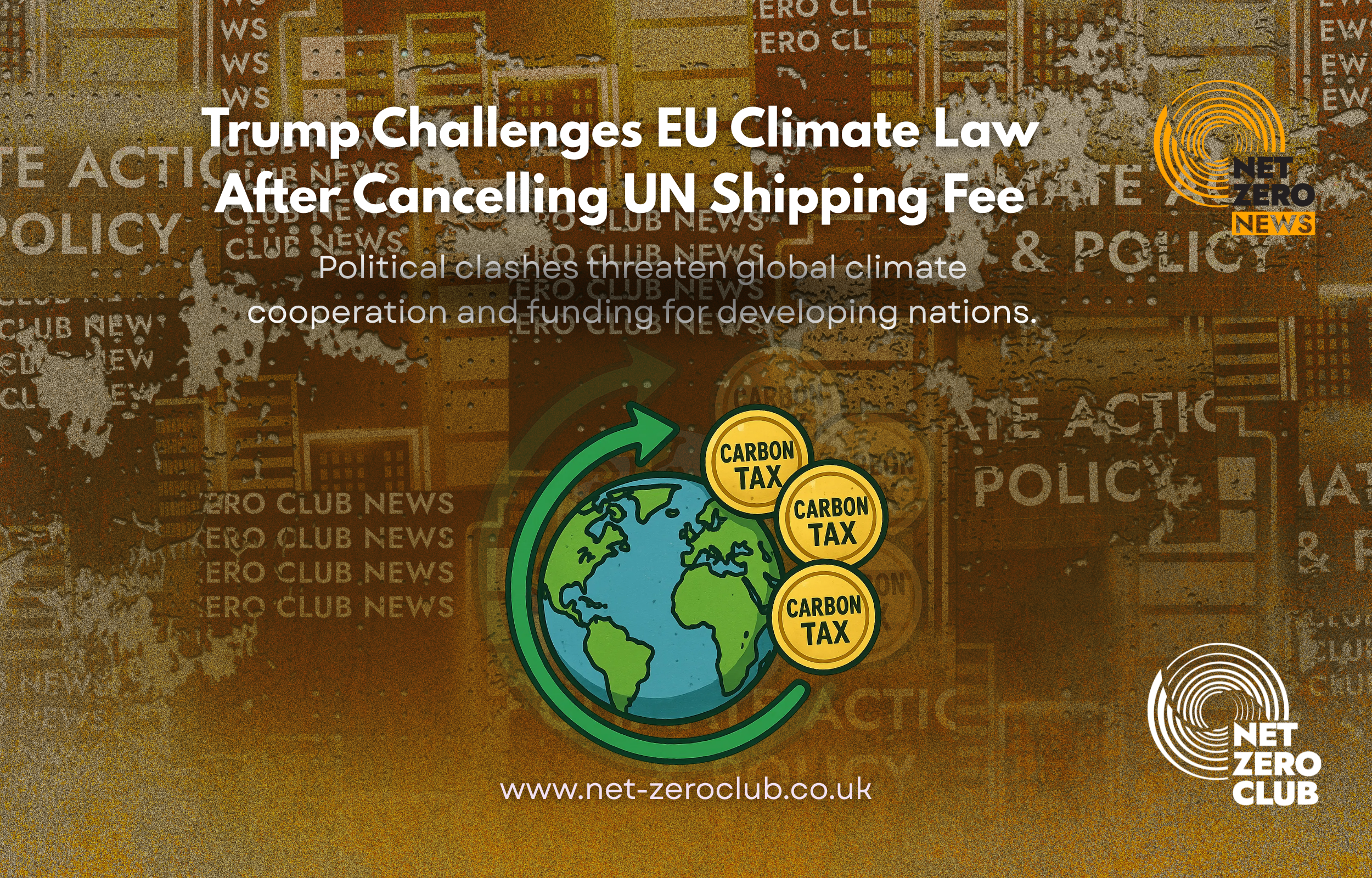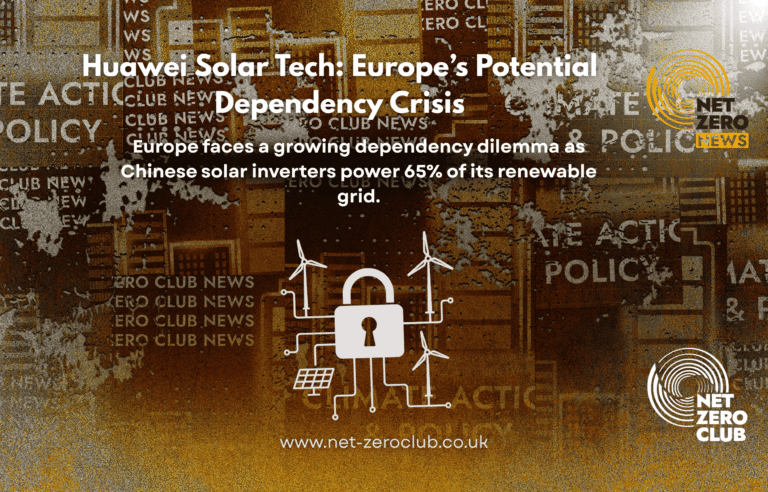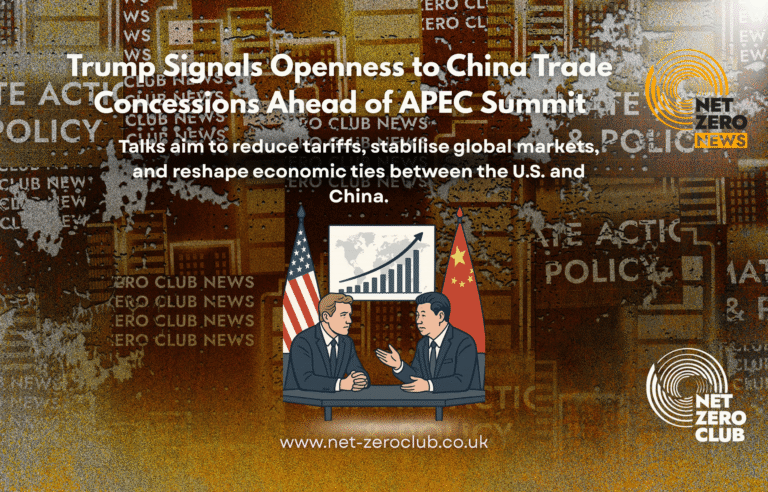Trump Challenges EU Climate Law After Cancelling UN Shipping Fee

Hello, Champions of Net Zero!
In a world increasingly focused on climate change and sustainability, the political landscape often shapes the very frameworks that govern our environmental policies. Recently, former US President Donald Trump has made headlines by taking aim at European climate legislation, a move that could have significant implications for global efforts to combat climate change. This article delves into the details surrounding Trump’s actions, the European climate law in question, and what it all means for the future of climate policy worldwide.
As the climate crisis continues to escalate, nations are under mounting pressure to reduce carbon emissions and transition towards sustainable practices. The European Union (EU) has been at the forefront of these efforts, implementing a series of ambitious climate laws designed to significantly reduce greenhouse gas emissions by 2030, as part of the bloc’s overarching goal of achieving net-zero emissions by 2050.
These laws include regulations on emissions from various sectors, including transport, industry, and energy. However, Trump’s recent comments suggest a stark opposition to these initiatives, arguing that they could harm economic growth and competitiveness, particularly for US industries. This rhetoric is reminiscent of his previous term, during which he withdrew the US from the Paris Agreement, signalling a reluctance to engage in global climate action.
One of the most controversial aspects of the EU’s climate policy is its proposed ‘carbon border adjustment mechanism’, which aims to impose tariffs on imports from countries with less stringent climate regulations. This move is intended to level the playing field for European industries and incentivise other nations to adopt greener practices. However, Trump’s criticisms highlight a broader concern among some US policymakers: that such measures could lead to trade disputes and economic repercussions.
Moreover, Trump’s critique isn’t just limited to European regulations; it also follows his decision to kill the United Nations’ proposed shipping fee aimed at generating funds to combat climate change. This fee, which was intended to be levied on international shipping companies, would have raised billions to support climate initiatives in developing countries. By dismantling this proposal, Trump has drawn ire from environmentalists and global leaders who argue that funding is crucial for supporting vulnerable nations in their fight against climate change.
So, what does this mean for global climate negotiations? Trump’s stance could embolden other nations with similar sentiments, potentially undermining multilateral efforts to address climate change. The EU has long positioned itself as a leader in global climate policy, and Trump’s actions may create a rift between Europe and the US, complicating future collaborations on environmental issues.
As the world grapples with the urgent need for action, it’s crucial for all stakeholders to engage in constructive dialogue, rather than retreating into isolationist policies. Climate change knows no borders, and the solutions require collaborative efforts that transcend national interests. The implications of Trump’s actions may reverberate far beyond the immediate political landscape, affecting the pace at which nations can collectively respond to one of the most pressing challenges of our time.
In conclusion, the intersection of politics and climate action is a complex and often contentious arena. As we move forward, it’s essential for the Net Zero community to advocate for sustainable policies that prioritise environmental health and global cooperation. With leaders like Trump opposing critical climate initiatives, the fight for a sustainable future requires unwavering commitment and resilience from all of us. Let us remain vigilant and proactive in our pursuit of a net-zero world, championing practices that protect our planet for generations to come.
Stay tuned for more updates on climate policy and its implications for our journey toward net zero. Together, we can navigate these challenges and work towards a sustainable future.

 Got net-zero news, project updates, or product launches to share?
Got net-zero news, project updates, or product launches to share? 

